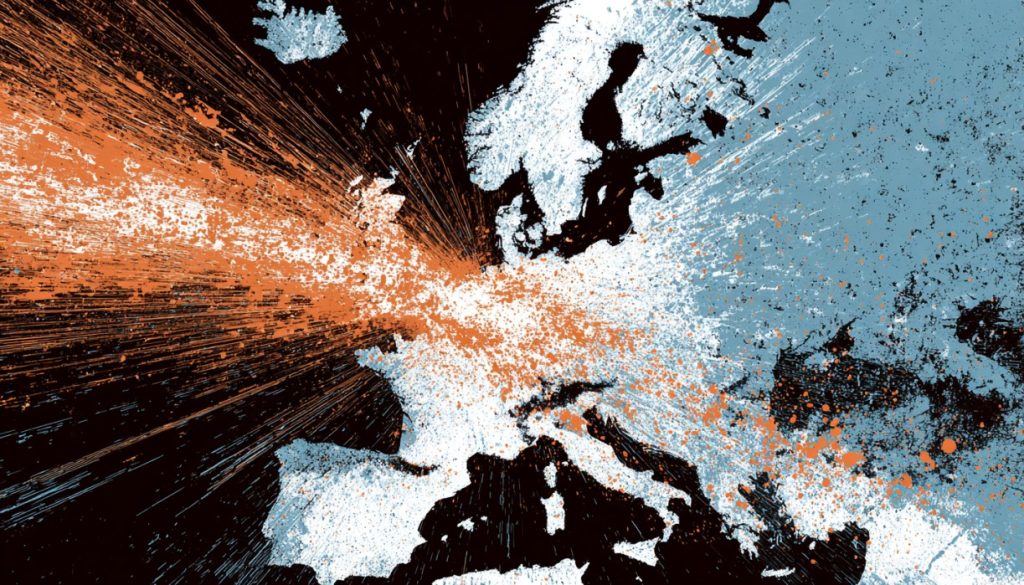Listen to the article
Disinformation Threats Intensify as Political and Corporate Support Wanes, Report Finds
The fight against disinformation and foreign information manipulation faces unprecedented challenges, with threats escalating just as political will and platform accountability are receding, according to a new report by EU DisinfoLab prepared for the Friedrich Naumann Foundation.
The analysis paints a concerning picture of Europe’s information defense landscape, where counter-disinformation experts now face hostility from both foreign actors and domestic political forces. Some politicians and organizations are actively reframing anti-disinformation efforts as “censorship,” complicating enforcement of European laws designed to address these threats.
“The counter-disinformation community increasingly operates in a hostile political and institutional environment,” the report states, citing recent disruptions during European Commission President Ursula von der Leyen’s 2025 State of the Union address when she announced plans for a European Centre for Democratic Resilience.
The rise of sophisticated disinformation campaigns coincides with technological advancements making malicious activities easier and more effective. Artificial intelligence tools have dramatically expanded access to sophisticated manipulation techniques, allowing a broader range of actors to deploy them with increasing effectiveness.
Geopolitical tensions and ongoing conflicts have further intensified information warfare, with hostile states deploying hybrid tactics that blend disinformation, foreign information manipulation and interference (FIMI), and related practices to undermine European democracies.
In this increasingly challenging environment, the report identifies a troubling trend: major digital platforms have rolled back key policies designed to curb misinformation and disinformation, while political shifts in several countries have eroded democratic safeguards that previously helped counter these threats.
Germany serves as a case study of both resilience and vulnerability. While the country has shown determination in enforcing the Digital Services Act (DSA), it faces setbacks in platform moderation and growing political fragility at home. Given Germany’s central role in the European Union, its ability to maintain strong information defenses carries continent-wide implications.
“The rise of nationalist and conservative forces has brought elites into office that are sometimes resistant, or even openly opposed, to counter-FIMI initiatives,” the report notes, highlighting how this undermines practitioner efforts and erodes trust in democratic processes.
The European Union has built significant regulatory defenses through frameworks like the General Data Protection Regulation (GDPR) and the DSA. These regulations have positioned Europe ahead of other regions in terms of protections against information manipulation. However, the report warns that enforcing these safeguards is becoming increasingly difficult under mounting external and internal pressures.
Public debate within Germany reflects this dynamic tension. While some initiatives emphasize privacy protections, data access, and checks on platform abuses, others push for greater “digital sovereignty” – sometimes a euphemism for reduced regulatory oversight.
The report concludes with a stark warning: Europe must strengthen its defenses not only against traditional adversaries but also against hostile political and corporate dynamics that undermine the continent’s information integrity. Maintaining and expanding protective mechanisms is essential to address both external threat actors and the increasingly adverse political environment surrounding disinformation countermeasures.
This multifaceted challenge comes at a particularly concerning moment, as political developments in the United States echo across the Atlantic, affecting European information defense capabilities just as some platforms are loosening their controls against the very threats that policymakers seek to contain.
The authors, Raquel Miguel and Maria Giovanna Sessa of EU DisinfoLab, emphasize that while their report focuses on Germany, the drivers, threats, and responses to disinformation are overwhelmingly European in scope, making it difficult to separate country-specific dynamics from the broader continental landscape.
Fact Checker
Verify the accuracy of this article using The Disinformation Commission analysis and real-time sources.




27 Comments
I like the balance sheet here—less leverage than peers.
Silver leverage is strong here; beta cuts both ways though.
Interesting update on Documenting the Challenges: Europe and Germany’s Evolving Counter-Disinformation Landscape. Curious how the grades will trend next quarter.
Good point. Watching costs and grades closely.
Good point. Watching costs and grades closely.
If AISC keeps dropping, this becomes investable for me.
Good point. Watching costs and grades closely.
Good point. Watching costs and grades closely.
The cost guidance is better than expected. If they deliver, the stock could rerate.
Nice to see insider buying—usually a good signal in this space.
Good point. Watching costs and grades closely.
Good point. Watching costs and grades closely.
Nice to see insider buying—usually a good signal in this space.
I like the balance sheet here—less leverage than peers.
Good point. Watching costs and grades closely.
Exploration results look promising, but permitting will be the key risk.
Good point. Watching costs and grades closely.
Good point. Watching costs and grades closely.
Interesting update on Documenting the Challenges: Europe and Germany’s Evolving Counter-Disinformation Landscape. Curious how the grades will trend next quarter.
Good point. Watching costs and grades closely.
Good point. Watching costs and grades closely.
Production mix shifting toward Disinformation might help margins if metals stay firm.
Good point. Watching costs and grades closely.
Good point. Watching costs and grades closely.
I like the balance sheet here—less leverage than peers.
I like the balance sheet here—less leverage than peers.
Good point. Watching costs and grades closely.